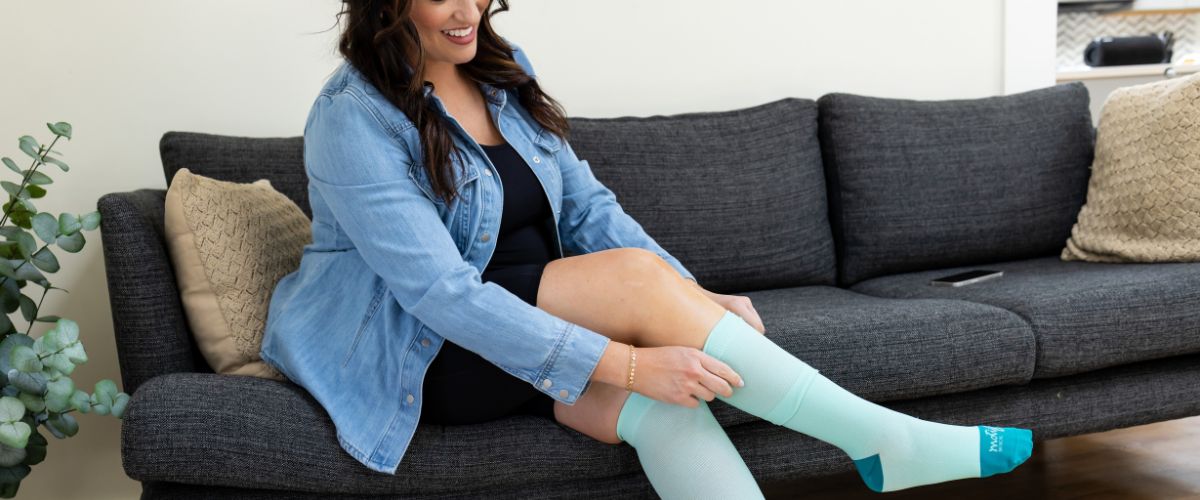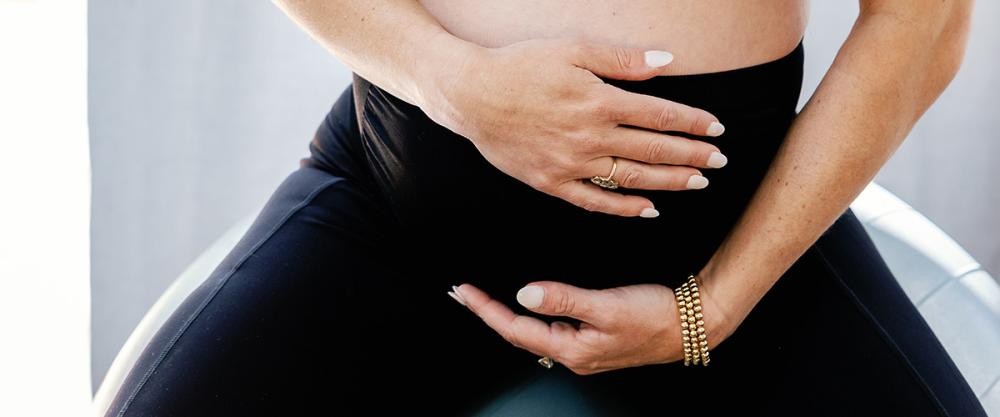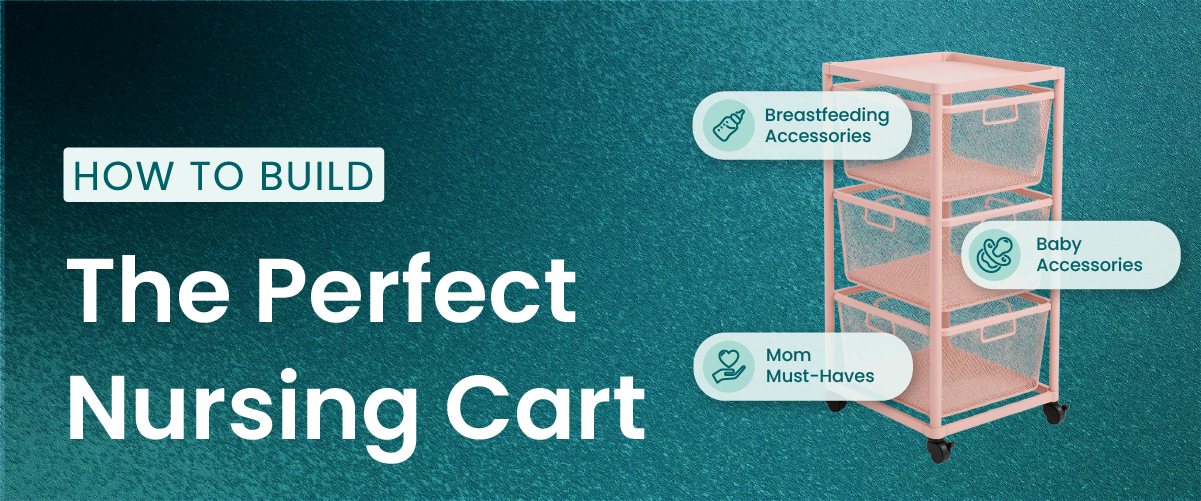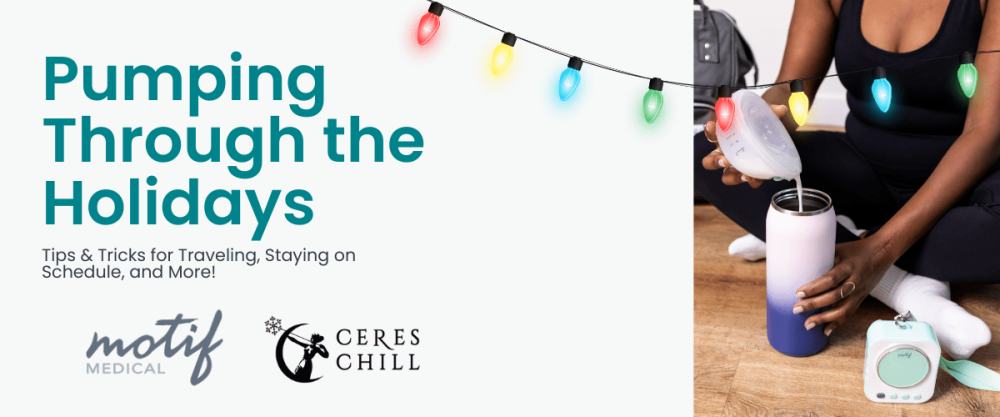The postpartum period is a time of transition and a lot of change. If you’re a first time parent, you’ll be figuring out how to care for a tiny human and if you already have a child or two, you’re learning how to integrate the new sibling into the family. In my experience, most new parents don’t have a clear picture of what to expect during this time, and many providers don't address much about postpartum care, so I’ve put together my top 5 tips to help you feel more comfortable and confident after you bring baby home. Taking care of yourself and letting others help you out will reduce your risk of postpartum depression, increase your success with breastfeeding, and help alleviate the baby blues. With just a little preparation, you’ll be able to make the most of those first few weeks with your new baby.
1. Rest
One of the most important things for you to do after you have a baby is rest. Your body has done so much through pregnancy and birth and it is now time for you to give yourself a break. For at least the first two weeks, all you need to do is rest and feed your baby.
Avoid stairs, if possible, for the first several days and just hang out at the house for the first couple of weeks. Ideally, new mothers don’t have to do any cooking, cleaning, errands, or childcare (other than feeding the baby) for the first 14 days. Whether you had a vaginal delivery or a cesarean section, your body needs to rest and recover. Your physical rest will help avoid complications from a postpartum hemorrhage, pelvic floor prolapse, and other maternal health issues.
2. Make a “Bring, Take, Do” list
So if you’re going to rest for the first few weeks, who will take care of all of the housekeeping? A past client of mine shared the idea of having a “Bring, Take, Do List” — it’s a list of the chores you’ll want to have done during those first postpartum weeks. At the top, ask that all visitors accomplish one task on the list: bring something (food, groceries, diapers), take something (take out the trash, take mail to the post office) or do something (do the dishes, laundry, vacuuming).
I love this idea because you can hang your list on your front door to remind your visitors to help you out when they come over. I also recommend that you and your partner have a plan for who can visit and when. Lots of people like to come visit a new baby, but the best and safest place for your baby to be is with their parents, particularly if you plan to breastfeed. Before the baby is born, figure out how you feel about scheduled or unscheduled visits, who do you want to come or if there is anyone you want to not come visit.
Make sure you’re both on the same page about all of that so you can let your friends and family know what to expect when they ask about coming over.
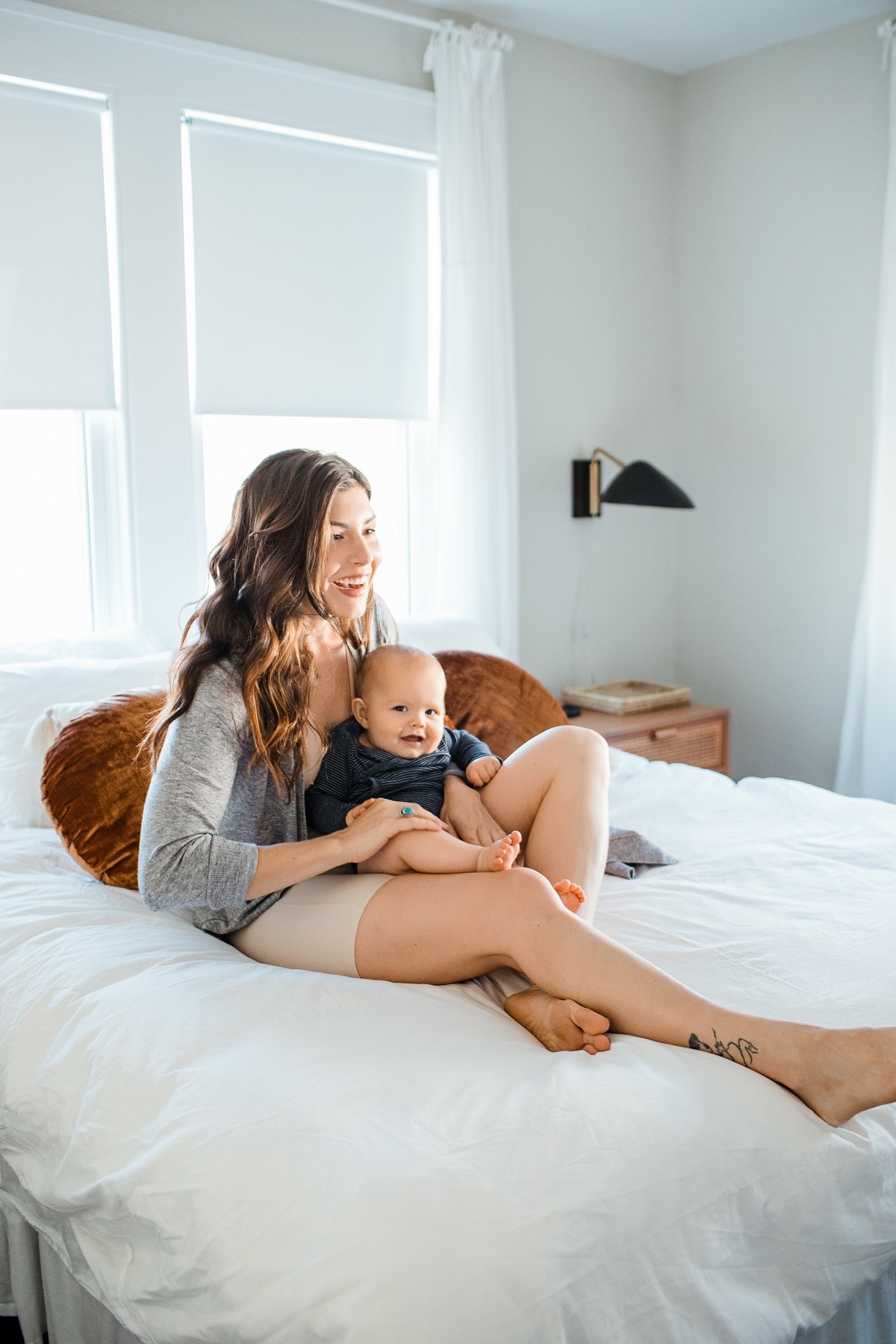

3. Keep Yourself Comfortable (padsicles, water bottle, snacks)
Giving birth to a baby is a lot of hard work! Your body is going to be sore for several days or even a couple of weeks, depending on your delivery. Before the baby is born, set up a couple of feeding stations around your house—places you think you’ll sit and hang out while you’re breastfeeding or bottle feeding your baby. Make sure you have snacks and a water bottle within reach and some people like to have a phone charger or the remote control handy, too.
A heating pad and a postpartum support garment can also help you be more comfortable in the first weeks postpartum. The heating pad can be used on your lower back or abdomen and the compression can help with overall stability. Most of my clients have also loved having some padsicles ready for the postpartum. Padsicles are regular sanitary pads that you put unscented aloe vera gel and witch hazel on and then freeze. These cool ice packs can help relieve the swelling and discomfort of the perineum many new moms feel after a vaginal delivery, particularly if it’s your first baby or if you tore at all.
4. Have a meal plan
Ideally neither you or your partner will have to worry about making meals for at least the first two weeks. Meal trains are incredibly helpful for this, as are church groups, family members, and neighbors. Let anyone who will be bringing you food know about any food preferences or allergies that you have and include requests for whole grains and foods that are high in fiber--constipation is something you want to avoid in the postpartum!
It's also helpful to have someone pick up some groceries with easy snacks and fresh fruits and veggies so you will have those on hand, too. If you’re napping and don’t want to have anyone stop in for a visit, you can leave a cooler by your front door and let people know to drop off the food at their convenience and you’ll bring it in when you’re able. Having some disposable dishes can also be helpful during the immediate postpartum because then no one has to clean the dirty dishes!
5. Contact Names and Numbers For Local Resources
While I hope that your postpartum experience will be full of sweet baby snuggles and the blissful sleepy smiles of new parenthood, sometimes things don’t start off as smoothly as we’d hope. I recommend all expecting parents have a list of contact information for local health care providers they may need to call after the baby is born. It can be incredibly stressful for your baby to be colicky or if you’re having breastfeeding or engorgement troubles, but it helps to have a plan in place.
Your list should include a lactation consultant, chiropractor, pediatric dentist (in case your baby needs to have tongue or lip ties revised), postpartum doula, and of course your primary care provider and pediatrician. If you have older kids, it can also be helpful to have a list of potential childcare options, in case you find yourself needing an extra hand in those first couple of weeks.
If you follow these 5 tips, you can take a deep breath and know that you’re prepared for life after the baby is born. Make sure to schedule a checkup with your doctor or midwife to discuss your ongoing postnatal care and well-being. They can screen you for blood pressure issues, mental health disorders, and other health conditions that can pop up during the postpartum. Being a parent is one of life’s greatest adventures because so much of it is a surprise, but you’re going to figure this out one lovely, potentially sleepy, day at a time.




